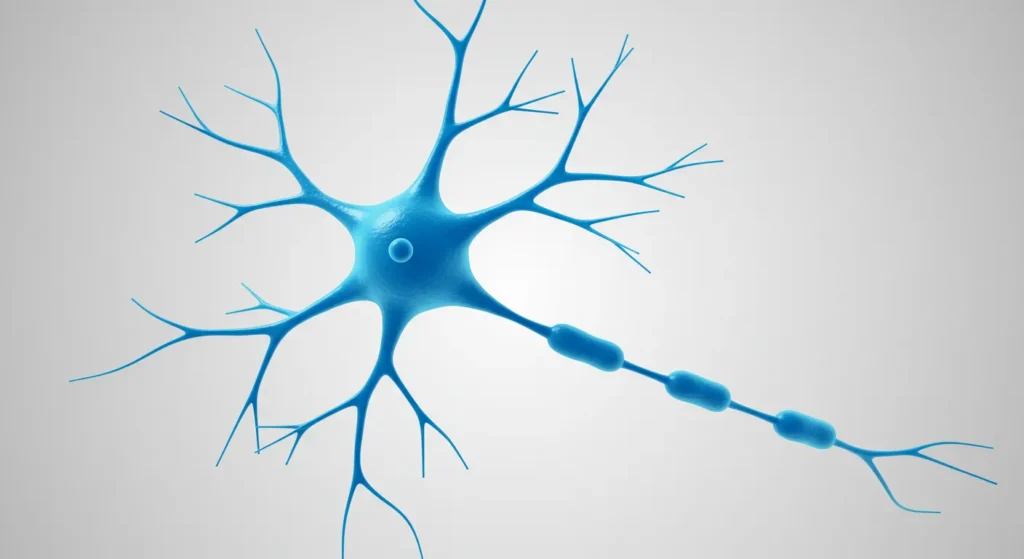How to Increase Focus Naturally: 20 Science-Based Focus Hacks

Three months ago, I found myself staring at the same email for fifteen minutes without actually reading it. My mind was everywhere except where it needed to be, and I was getting frustrated with what felt like a complete inability to concentrate on anything meaningful.
Sound familiar? If you’re struggling with focus and wondering how to increase focus naturally without resorting to stimulants or expensive supplements, you’re in the right place.
After months of research and experimentation, I’ve discovered that regaining focus isn’t about willpower or discipline – it’s about understanding how your brain actually works and creating the right conditions for it to thrive.
Why Modern Life Has Hijacked Your Attention
Let’s be honest about what we’re up against. Our brains evolved to notice every potential threat or opportunity in our environment. That was useful when we were hunting and gathering, but now it means we’re constantly distracted by notifications, open browser tabs, and the mental noise of modern life.
I used to think my scattered attention was a personal failing. Turns out, it’s a completely normal response to an abnormal environment. Once I understood this, I stopped beating myself up and started working with my brain instead of against it.
The real culprits behind poor focus aren’t laziness or lack of motivation. They’re usually:
- Blood sugar rollercoasters from poor eating habits
- Chronic stress keeping your brain in fight-or-flight mode
- Digital overwhelm fragmenting your attention
- Sleep deprivation affecting your prefrontal cortex
- Nutritional deficiencies your brain needs to function properly
Movement: The Foundation of Mental Clarity
Here’s something I wish I’d learned earlier: your brain needs your body to move. When I started taking a 20-minute walk before sitting down to work, my ability to concentrate improved dramatically.
Exercise increases blood flow to your brain and releases chemicals like BDNF (brain-derived neurotrophic factor) that literally help your neurons grow and connect better. You don’t need to become a fitness fanatic – even gentle movement makes a difference.
I’ve found that simple brain exercises work too. Cross-crawls, where you touch your right hand to your left knee and vice versa, help coordinate the two hemispheres of your brain. It sounds silly, but it genuinely helps with mental clarity.
Eating for Better Brain Function
This was probably the biggest game-changer for me. When I stopped treating food as just fuel and started thinking about it as brain medicine, everything shifted.
The best foods for brain health aren’t exotic or expensive. Blueberries provide antioxidants that protect your neurons. Leafy greens like spinach and kale are packed with folate, which supports neurotransmitter production. Eggs give you choline, essential for memory and focus.
I learned to avoid what I now call “brain fog foods” – anything that spikes your blood sugar and then crashes it. Processed snacks, sugary drinks, and refined carbs might give you temporary energy, but they leave you more scattered than before.
Now I start my day with protein and healthy fats. Greek yogurt with berries and nuts, or eggs with avocado. This keeps my blood sugar stable and my mind sharp for hours.
Creating Your Focus Environment
Your environment shapes your attention more than you realize. I used to try to work with music playing, multiple browser tabs open, and my phone buzzing nearby. No wonder I couldn’t concentrate.
Now I create what I call “focus zones.” When I need to do deep work, everything nonessential disappears. Phone goes in another room. I close all unnecessary tabs. Sometimes I light a candle or diffuse peppermint essential oil – not because I believe in magic, but because consistent sensory cues help train my brain to enter focus mode.
Essential oils for mental clarity might sound like wellness trend nonsense, but there’s actually research showing that certain scents can affect alertness and cognitive performance. Rosemary and peppermint seem to help with concentration. Even if it’s partially placebo effect, it works.
The Power of Mental Decluttering
One morning routine that changed everything for me is what I call a “brain dump.” Before I start work, I spend five minutes writing down everything that’s swirling around in my head – tasks, worries, random thoughts, whatever.
This simple practice clears mental clutter and helps me identify what actually deserves my attention. It’s like cleaning your workspace before starting a project – suddenly everything feels more manageable.
I also use a basic daily productivity planner approach. Three important tasks, three quick admin items, three personal priorities. This structure prevents decision fatigue and helps me stay focused on what matters most.
Natural Supplements That Actually Help
I’m generally skeptical of supplements, but a few have made a noticeable difference in my ability to concentrate:
L-theanine with caffeine: This combination gives me calm alertness without the jittery feeling of coffee alone. L-theanine is an amino acid found in tea that promotes relaxation without drowsiness.
Omega-3 fatty acids: If you don’t eat fish regularly, these are worth considering. My mental clarity improved noticeably after a few weeks of consistent use.
Magnesium: Helps with stress and sleep quality, which directly impacts focus the next day.
I’ve also experimented with adaptogenic herbs like rhodiola rosea, which seems to help with mental stamina during stressful periods. Lion’s mane mushroom is interesting too – there’s emerging research on its potential to support neuroplasticity.
The Science of Single-Tasking
Multitasking is a myth that’s costing us our ability to think deeply. What we call multitasking is actually rapid task-switching, and it exhausts your brain’s glucose supply quickly.
Learning to do one thing at a time was probably the hardest habit for me to develop, but also the most rewarding. When I force myself to monotask – whether it’s writing, reading, or even having a conversation – the quality of my attention improves dramatically.
I use the Pomodoro technique as training wheels for this. Twenty-five minutes of focused work on one task, then a five-minute break. During the break, I step away from my workspace completely – no checking emails or scrolling social media.
Training Your Attention Span
Your attention span isn’t fixed – it’s trainable. I started with embarrassingly short periods of focused work and gradually increased them. Now I can maintain deep concentration for several hours when needed.
The key is consistency over intensity. Even ten minutes of focused practice daily builds your concentration muscle over time. I think of it as going to the gym for your brain.
Meditation for concentration doesn’t have to be complicated. I started with just three minutes of focusing on my breath. When my mind wandered (which it always did), I gently brought attention back to breathing. This simple practice strengthened my ability to notice when my mind drifts and redirect it.
Working with Your Natural Rhythms
I discovered that my brain has predictable patterns of alertness throughout the day. Instead of fighting these rhythms, I learned to work with them.
My peak focus time is usually mid-morning, so that’s when I tackle my most challenging work. By afternoon, my attention naturally wanes, so I save routine tasks for then. Understanding your chronotype – whether you’re naturally a morning person or night owl – can help you schedule focused work when your brain is most ready for it.
The Role of Sleep in Focus
Poor sleep doesn’t just make you tired – it specifically impairs your prefrontal cortex, the brain region responsible for attention and executive function. When I prioritized getting seven to eight hours of quality sleep, my ability to concentrate during the day improved significantly.
Simple sleep hygiene makes a real difference: keeping your bedroom cool and dark, avoiding screens for an hour before bed, and maintaining consistent sleep and wake times even on weekends.
Digital Minimalism for Mental Clarity
This might be the most important section for our hyperconnected world. I had to get honest about how much digital distraction was fragmenting my attention.
Now I use focus apps like Forest when I need to concentrate. I’ve also created separate user accounts on my computer – one for work with no social media bookmarks, and another for personal use. This small friction makes a big difference in staying on task.
My phone goes on airplane mode during deep work sessions. Email gets checked at specific times rather than constantly throughout the day. These aren’t extreme measures – they’re necessary boundaries in our distraction-rich environment.
Building Sustainable Focus Habits
The most important lesson I’ve learned is that sustainable focus improvement comes from small, consistent changes rather than dramatic overhauls. Pick one or two techniques that resonate with you and practice them consistently for a few weeks before adding more.
Your brain’s neuroplasticity means it can literally rewire itself based on your habits and experiences. Every time you choose to focus on one thing instead of multitasking, you’re strengthening neural pathways that support better concentration.
What Doesn’t Work (Save Your Time)
After trying countless methods, here’s what I’ve learned doesn’t help with focus:
- Trying to power through when you’re mentally exhausted
- Relying solely on caffeine or stimulants
- Attempting to focus in chaotic environments
- Expecting immediate results from new habits
Focus is a skill that develops gradually, not a switch you can flip instantly.
The Next Move
Learning how to increase focus naturally isn’t about becoming a productivity machine or eliminating all distractions from your life. It’s about creating conditions where your brain can do what it naturally wants to do – think clearly and work effectively.
Start with your basics: move your body, eat foods that support brain function, get adequate sleep, and create an environment that supports rather than sabotages your attention.
Remember that focus is ultimately about being present with whatever you’re doing. In our scattered world, the ability to give sustained attention to meaningful work or relationships is both a competitive advantage and a path to greater satisfaction.
Your brain is remarkably adaptable. With the right approach, you can train it to focus more deeply and think more clearly than you might currently believe possible.
Want more focus-boosting tips? Check out our related posts!
Disclaimer: The information provided is for educational purposes only, not a substitute for professional medical advice. Always consult a healthcare professional.







